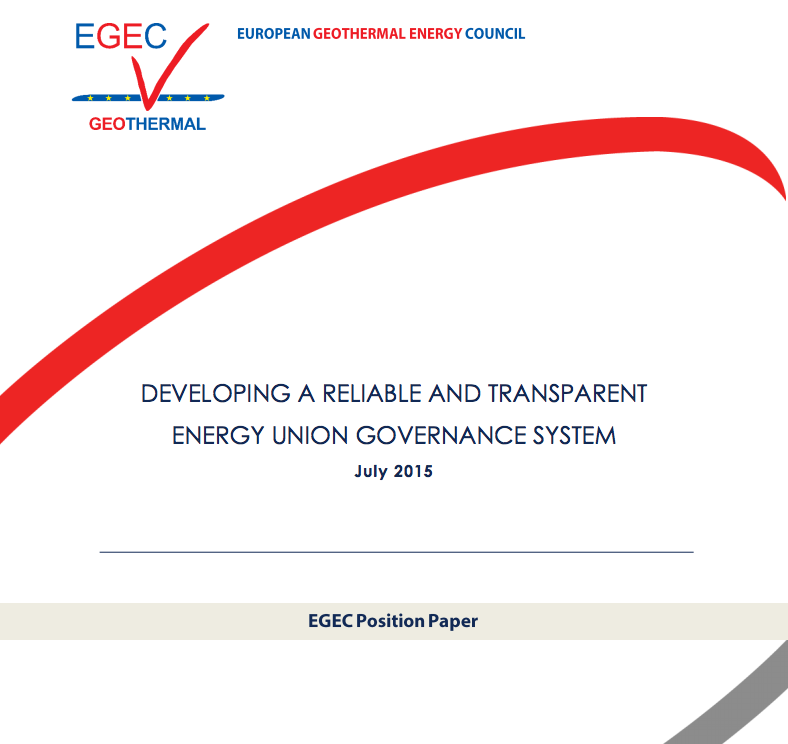EGEC paper with concrete proposals for Energy Union governance system
Ahead of a meeting of the Directors-General for Energy and Climate on 15 July 2015, EGEC releases a position paper with clear proposals for a reliable and transparent Energy Union governance system.
Ahead of a meeting of the Directors-General for Energy and Climate on 15 July 2015, EGEC releases today a position paper setting out concrete proposals to develop a reliable and transparent Energy Union governance system.
Click here to download the paper
Key messages:
- A reliable, transparent, and integrated governance system of the Energy Union must make clear how, in the absence of 2030 national binding targets for renewables and energy efficiency, the meeting of EU-wide targets will be assured, and who will be responsible in case of failure.
- The governance system must be based on a number of legal principles: existing legal obligations for the achievement of the 2020 targets should remain untouched; new rules and processes governing the Energy Union should be agreed by the Council and Parliament in accordance with the ordinary legislative procedure. Also, Member States must be accountable for their actions, as the achievement of the 2030 targets primarily depends on them.
- Ensuring the 2030 targets for RES and energy efficiency are met: a combination of binding measures and EU financial mechanisms is a desirable option. A ‘carrot and stick’ framework, led by the EC, could be developed in four stages:
i) Commission develops top-down benchmarks.
ii) Commission collects voluntary pledges and brings forward proposals for a number of binding measures, complemented by EU financial mechanisms. A mid-term review is conducted in 2024 in order to monitor progress, and to allow corrective measures to be taken. Examples of measures and financial mechanisms are included in this paper.
iii) If this softer approach is proving unsuccessful at the review, the Commission proposes further measures or binding national targets based on the original benchmarks (see step 1).
iv) If Member States do not comply with their obligations, Commission launches infringement procedures.
- Planning and reporting for renewables: The new governance should keep, as much as possible, the positive elements of the current system which have proven to be successful in triggering a concerted dialogue between governments and the representatives of emerging renewable energy sectors, in increasing awareness, in improving resource assessment for all RES technologies, and in promoting innovation.
- Ensuring the consistency and comparability of Member States’ policies in all five dimensions of the Energy Union: Whilst more solid legislation, planning, and reporting is needed in areas with EU targets a more intergovernmental process, based on soft law and voluntary cooperation is appropriate in areas without EU targets. The final governance system should result in a dynamic combination of softer and stricter rules. Progress in all of the dimensions of the Energy Union can be measured and compared through a number of key performance indicators.
- Regional cooperation: The governance system should pave the way for a smart enhanced regional cooperation in areas such as market integration, infrastructure, security of supply, research and innovation, etc. It should be envisaged from the start of the planning phase but should remain flexible and based on a bottom-up approach.



















